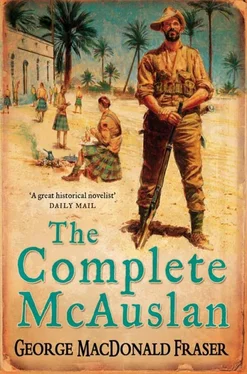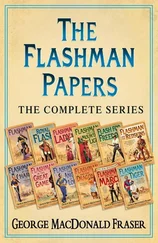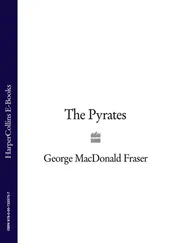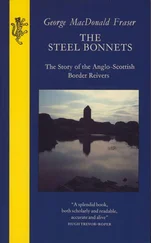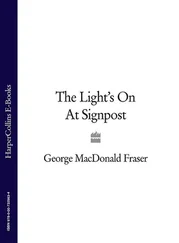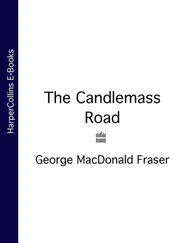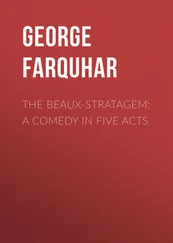As I gaed doon tae Wilson Toon
Ah met wee Geordie Scobie,
Says he tae me “Could ye gang a hauf?”
Says I, “Man, that’s my hobby.”
We came in quietly on the chorus, which is “We’re no awa’ to bide awa’, we’ll aye come back and see ye,” which Scottish soldiers invariably sing after the first two or three drinks, and which the remnants of the regiment had sung as they waited for the end at St Valery. Then we refilled them again, and while Fletcher and Daft Bob wrangled over the distribution, Forbes asked me with casual unconcern how I was liking the battalion. I said I liked it very well, and we talked of this and that, of platoon business and how the Rangers were doing, and the Glasgow police force and the North African weather. And after a few more drinks, in strict sobriety, Fletcher said:
“We’ll have tae be gettin’ along.”
“Not a bit of it,” I said. “It’s not late.”
“Aye, weel,” said Fletcher, “mebbe it’s no’.”
“Aw-haw-hey,” said Daft Bob.
So another half hour passed, and I wondered how I would find out the answers to the questions which could not be asked. Probably I wouldn’t, but it didn’t matter, anyway. Next day, on parade, Fletcher would be looking to his front as stonily as ever, Leishman would have given several extra minutes’ attention to his rifle, I would be addressing Daft Bob severely, and all would be as it had been—except that for some reason they had thought it worth while to come and see me on Hogmanay. Some things you don’t ponder over; you are just glad they happened.
“You gaunae sit boozin’ a’ night?” Fletcher snapped at Daft Bob. “Sup, sup, sup, takin’ it in like a sponge, I’m ashamed o’ ye.”
“Ah’ll no’ be rollin’ in your gutter, Fletcher,” said Daft Bob. “So ye neednae worry. It’s no’ me Mr MacNeill’ll be peggin’ in the mornin’ for no’ bein’ able tae staun up on parade.”
“Peg the baith o’ ye,” said Forbes. “Ye’re aye greetin’ at each other.”
“Sharrup,” said Fletcher. “C’mon, get the bottles packed up. Let the man get tae his bed.”
Daft Bob and McClusky collected the empties, while Fletcher bossed them, and they all straightened their bonnets, and looked at each other again.
“Aye, weel,” said Forbes.
“Well,” I said, and stopped. Some things are impossible to put into words. “Well,” I said again. “It was great to see you. Thank you for coming.”
“Ye’ll be seein’ us again,” said Fletcher.
“Aw-haw-hey,” said Daft Bob.
“Every mornin’, numbered aff by the right, eh, Heinie?” said McClusky.
“That’s the way,” said Forbes.
“Tallest on the right, shortest on the left.”
“Clean, bright, and slightly oiled.”
“We’re the wee boys.”
“Gi’ the ba’ tae the man wi’ glasses.”
“Here’s tae us, wha’s like us?”
“Aw-haw-hey.”
“Ye gaunae staun’ there a’ night, then?” demanded Fletcher.
“Ah’m gaun. Ah’m gaun,” said Daft Bob. “Night, sir. Guid New Year.” They jostled out, saying good-night and a good New Year, and exchanging their incredible slogans.
“Good night,” I said. “Thanks again. Good night, Fletcher. Good night, Forbes. Good night, D— er, Brown. Good night.”
They clattered off up the corridor, and I closed the door. The room was full of cigarette smoke and bar-room smell, the ash-trays were overflowing, and there was a quarter-full bottle of whisky still on the sidetable, forgotten in the packing. I sat on the edge of my bed feeling about twenty feet tall.
Their feet sounded on the gravel, and I heard Daft Bob muttering, and being rebuked, as usual, by Fletcher.
“Sharrup, ye animal.”
“Ah’ll no’ sharrup. Ah’ll better go back an’ get it; it was near half-full.”
“Ach, Chick’ll get it in the mornin’.”
There was a doubt-laden pause, and then Daft Bob: “D’ye think it’ll be there in the mornin’?”
“Ach, for the love o’ the wee wheel!” exclaimed Fletcher. “Are ye worried aboot yer wee bottle? Yer ain, wee totty bottle? Ye boozy bum, ye! D’ye think Darkie’s gaun tae lie there a’ night sookin’ at yer miserable bottle? C’mon, let’s get tae wir kips.”
The sound of their footsteps faded away, and I climbed back into bed. In addition to everything else, I had found out who Darkie was.
* ile = oil (castor oil).
Play Up, Play Up, and Get Tore In
The native Highlanders, the Englishmen, and the Lowlanders played football on Saturday afternoons and talked about it on Saturday evenings, but the Glaswegians, men apart in this as in most things, played, slept, ate, drank, and lived it seven days a week. Some soldiering they did because even a peace-time battalion in North Africa makes occasional calls on its personnel, but that was incidental; they were just waiting for the five minutes when they could fall out crying: “Haw, Wully, sees a ba’.”
From the moment when the drums beat “Johnnie Cope” at sunrise until it became too dark to see in the evening, the steady thump-thump of a boot on a ball could be heard somewhere in the barracks. It was tolerated because there was no alternative; even the parade ground was not sacred from the small shuffling figures of the Glasgow men, their bonnets pulled down over their eyes, kicking, trapping, swerving and passing, and occasionally intoning, like ugly little high priests, their ritual cries of “Way-ull” and “Aw-haw-hey”. The simile is apt, for it was almost a religious exercise, to be interrupted only if the Colonel happened to stroll by. Then they would wait, relaxed, one of them with the ball underfoot, until the majestic figure had gone past, flicking his brow in acknowledgment, and at the soft signal, “Right, Wully,” the ball would be off again.
I used to watch them wheeling like gulls, absorbed in their wonderful fitba’. They weren’t in Africa or the Army any longer; in imagination they were running on the green turf of Ibrox or Paradise, hearing instead of bugle calls the rumble and roar of a hundred thousand voices; this was their common daydream, to play (according to religion) either for Celtic or Rangers. All except Daft Bob Brown, the battalion idiot; in his fantasy he was playing for Partick Thistle.
They were frighteningly skilful. As sports officer I was expected actually to play the game, and I have shameful recollections still of a company practice match in which I was pitted against a tiny, wizened creature who in happier days had played wing half for Bridgeton Waverley. What a monkey he made out of me. He was quicksilver with a glottal stop, nipping past, round, and away from me, trailing the ball tantalisingly close and magnetising it away again. The only reason he didn’t run between my legs was that he didn’t think of it. It could have been bad for discipline, but it wasn’t. When he was making me look the biggest clown since Grock I wasn’t his platoon commander any more; I was just an opponent to beat.
With all this talent to choose from—the battalion was seventy-five per cent Glasgow men—it followed that the regimental team was something special. In later years more than half of them went on to play for professional teams, and one was capped for Scotland, but never in their careers did they have the opportunity for perfecting their skill that they had in that battalion. They were young and as fit as a recent war had made them; they practised together constantly in a Mediterranean climate; they had no worries; they loved their game. At their peak, when they were murdering the opposition from Tobruk to the Algerian border, they were a team that could have given most club sides in the world a little trouble, if nothing more.
Читать дальше
